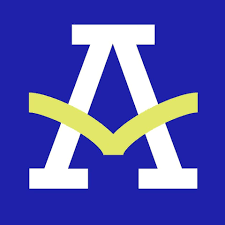MIDDLE SCHOOL
The middle school administrators, teachers, and staff are committed to creating a learning community where everyone is included, valued, and receives the support to grow. Ensuring that the transition from elementary to high school is challenging yet secure, teachers strive to foster an environment that sees mistakes and failures as temporary. It is through the successes and failures that come from taking risks, that students learn the important qualities of perseverance, grit, and resiliency. To provide a challenging learning atmosphere, Agora middle school attempts to meet the individual differences in student skills, interests, backgrounds, and rates of learning. Teachers have a variety of ways to work with the range of skill levels within a class. However, if you feel that your child is falling behind or needs to be challenged more, please contact your teacher(s). We believe that a student succeeds best when there is a strong partnership between home and school, a partnership that thrives on communication.
If you have an objection to specific academic course, content, a resource, an instructional practice or assessment, please follow the procedure detailed:
Meet Our Middle School Staff

Bridget Kozar

Heather Bianconi

Bernard Boccella

Jennifer Lucia

Jennifer Fisher-Clark

Maryann Johnson
HALF-DAY SCHEDULE
| MS Half Day Schedule | |
| Period 1 | 8:15 – 8:50 |
| Period 2 | 9:00 – 9:25 |
| Period 3 | 9:30 – 9:55 |
| Period 4 | 10:00 – 10:25 |
| Period 6 | 10:30 – 10:55 |
| Period 7 | 11:00 – 11:25 |
| Period 8 | 11:30 – 11:55 |
FULL DAY SCHEDULE
| Middle School Schedule & Periods | |
| 8:15-8:50 | Period 1 – Focus |
| 9:00 – 9:50 | Period 2 |
| 10:00 – 10:50 | Period 3 |
| 11:00 – 11:50 | Period 4 |
| 11:50-12:30 | Period 5 – Lunch |
| 12:30 – 1:20 | Period 6 |
| 1:30 – 2:20 | Period 7 |
| 2:30 – 3:20 | Period 8 |
| 3:30-4:00 | Period 9 |
Middle School Assessment Plan
|
|||||
| Assessment: | Intended For: | Type: | Description: | Purpose Use: | Administered: |
| State Mandated Testing Measures | |||||
| PSSA or PASA | Grades 6, 7, and 8 ELA and Math; Grade 8 Science
All students; special education students based on IEP |
Summative | The PSSA and PASA are standards-based, criterion-referenced assessments which
provides students, parents, educators and citizens with an understanding of student and school performance related to the attainment of proficiency of the academic standards |
The PSSA and PASA state assessments can be used to assist teachers in identifying
students who may be in need of additional educational opportunities, and school scores provide information to schools and districts for curriculum and instruction improvement discussions and planning. |
Spring |
| Act 35 Assessment of Civics Knowledge | Grade 7 Social Studies | Summative | The Civics assessment is a culminating designed to determine the knowledge, skills and actions of students as they participate in our Civics education programs. Our courses are based on US History, Government, and civics standards. | This assessment is given at least once between grades 7-12 to continuously guide school entities in developing strong curriculum that includes Civics knowledge ultimately preparing our students for future civic endeavors. | Spring May 11 |
| WIDA/ACCESS | Grades 6-8 | Summative | ACCESS online or WIDA is a federal requirement under ESSA for all English Language Learners registered. It is used for monitoring and reporting on Listening, Reading, Speaking and Writing. | This assessment is given annually to each EL and determines placement, language proficiency, and instructional implications in accordance with “Can Do” descriptors. | Winter (January) |
| Universal Screening Tools | |||||
| Classroom
Diagnostic Tool (CDT) MATH |
Grades 6-8 | Diagnostic Universal Screening Tool | CDTs provide a snapshot on why and how students may still be struggling or exceeding grade and/or course Eligible Content. | To provide information that will help guide instruction by providing support to students
and teachers. The CDT reports are designed to provide a picture or snapshot of how students are performing in relation to PA Assessment Anchors & Eligible content. |
Fall (by 9/8)
Winter (1/31-2/1) |
| Reading Plus Literacy Screener | Grades 6-8 | Diagnostic/
Universal Screening Tool; Interim/Benchmark Progress Monitoring |
Adaptive assessment gives a 360-degree view of each student. It provides a data-driven starting point for the personalized instruction and practice students need to become independent readers. | Data from the assessment will be used to guide instructional pathways in reading by pinpointing students’ strengths and areas for improvement. | Fall (8/30-9/3)
(Diagnostic/Screening) Winter (1/25) Spring (6/1) (Benchmarking) Monthly (PM) |
| Content-Based Assessments | |||||
| TDA Writing Benchmark
ELA Social Studies Science |
Grades 6-8 | Benchmark | Using the TDA Learning Progressions rubric in SAS, teachers assess students’ reading comprehension, analysis, and essay writing skills. The assessment is given quarterly, and the data is used to inform instruction. | The purpose of the TDA assessment is to improve student writing and analysis of text. This will be a benchmark assessment to predict how students will perform on the PSSAs and will also be an instructional tool which teachers use to inform instructional decisions. This will also help build students’ writing stamina. | (*Sign up)
11/1, 1/14, 3/18,5/25 |
| Constructed Response Writing Benchmark
ELA Social Studies Science Math |
Grades 6-8 | Benchmark | Using the CR rubric(s) in SAS, teachers assess students’ reading comprehension and analysis. The assessment is given quarterly, and the data is used to inform instruction. | The purpose of the CR is to take a look at student ability to analyze text or provide explanation. This will be a benchmark assessment to predict how students will perform on the PSSAs and will also be an instructional tool which teachers use to inform instructional decisions. | (*Sign up)
11/1, 1/14, 3/18,5/25 |
| Common Unit Assessments | Grades 6-8 | Summative | Locally-developed, standards-aligned assessment, administered to determine skills taught during a particular unit of study. | To measure mastery of standards addressed in each standards-aligned learning module. Data is analyzed and used to determine need for review and/gap analysis at a group or more individualized manner. | End of Unit
(as determined by content area sequence) |
| Special Education Local or Alternate Assessments (student specific) | |||||
| AimswebPlus | Grades 6-8 Students based on IEP | Diagnostic/Screening;
Also used for Progress Monitoring |
Online assessment used for universal screening and progress monitoring in the areas of early numeracy, early literacy, reading fluency, comprehension, written expression, math computations, math applications | Frequent assessment and monitoring of students at-risk or with severe needs. Expected rates of progress are prescribed and compared to actual progress, based on IEP goals. Reports evaluate student progress, prescribe program changes and revisions to ensure IEP success and serve as an accountability and communication tool for program evaluation and reporting. | Baseline at course beginning, then bi-weekly |
| MobyMax | Grades 6-8 PASA students based on IEP | Diagnostic
Interim/ Benchmark; Progress Monitoring |
Skill Checker pinpoints missing skills quickly and precisely. Benchmarked accurately measures performance for all standards within a grade level. Progress monitoring measures are built into the system. | Teachers can see a snapshot of student growth, assign lessons, and monitor student
progress from within the Skill Checker. Easy-to-use reports track students’ progress toward mastery of grade-level standards from the beginning to the end of the school year. |
Baseline in fall (or upon enrollment), then
Every 4-6 weeks |
| TeachTown | Grades 6-8 Students based on IEP | Progress Monitoring | Research-based program for students identified with Autism. Blend of computer-delivered and teacher-led instruction to increase student’s vocabulary, listening skills, social emotional development, independence, academics, and cognitive skills. Adaptable and aligned to Common Core Standards, state specific standards and student IEP goals. | Progress Monitoring Tool for students within full time autistic support. Determine developmental level on each learning domain: Adaptive skills, cognitive skills, language arts, language development, math, and social/emotional skills. Additional generalization lessons for students to demonstrate acquired skills. Aligned to student IEPs. | Monthly |
| Current Skills Assessment | Grades 7-8 Students based on IEP | Formative | Self-assessment of workplace, home, community, and independent living skills.
Students list whether they have mastered the skill, can do the skill with help, or are unable/unaware of the skill. |
Used to drive IEP transition planning and assist students in building missing workplace, home, community, and independent living skills | Annually |

 Agora Cyber Charter School
Agora Cyber Charter School